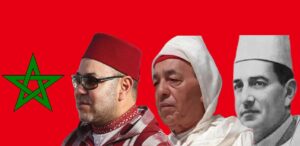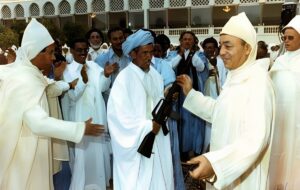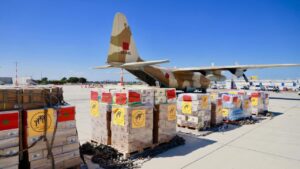Morocco: A Decade of Spiritual Leadership and Religious Diplomacy in Africa
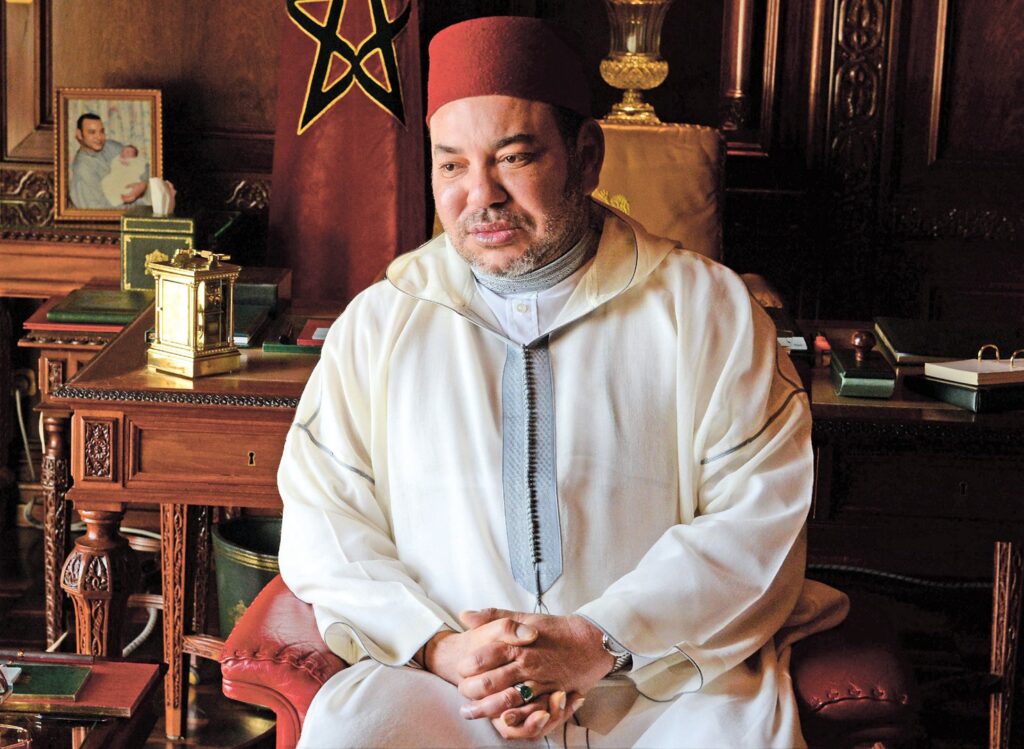
The year 2015 witnessed two pivotal events in Morocco, contributing to a qualitative shift in its soft power on the African continent. These events were marked by the establishment of two institutions, the tenth anniversary of which we are currently celebrating: the Mohammed VI Foundation of African Ulema and the Mohammed VI Institute for the Training of Imams. These two institutions were entrusted with the mission of undertaking what can be termed "religious diplomacy," which led to Morocco's "spiritual leadership" on the continent. This truly transformed Morocco into a center of religious and spiritual influence across Africa, and a unique model for achieving effectiveness in countering extremism. This role was achieved through a comprehensive approach and the integration of the roles of the two institutions, combining academic training, spiritual guidance, and human solidarity, which constituted a pillar of Morocco's African strategy.
The first axis: between common goals and unique privacy
The effectiveness of the Moroccan approach lies in the fact that the two institutions share a set of common goals, while at the same time maintaining their own unique tools and composition. Thus, it is useful to shed some light on this successful model.
First: Common goals:
Both institutions (the Mohammed VI Foundation of African Ulema and the Mohammed VI Institute for the Training of Imams) share a number of common goals, the most important of which are:
Spreading the values of moderate Islam: Emphasizing Moroccan religious constants (Maliki school, Ash'ari doctrine, and Sunni Sufism) as a unified approach to confronting extremist ideologies.
Strengthening spiritual bonds: By reviving the historical ties that bind Morocco to the African continent through the chains of allegiance, and renewing them within an institutional framework.
Combating extremism: By providing an intellectual and spiritual alternative that contributes to eliminating the causes of terrorism intellectually before confronting it through security measures.
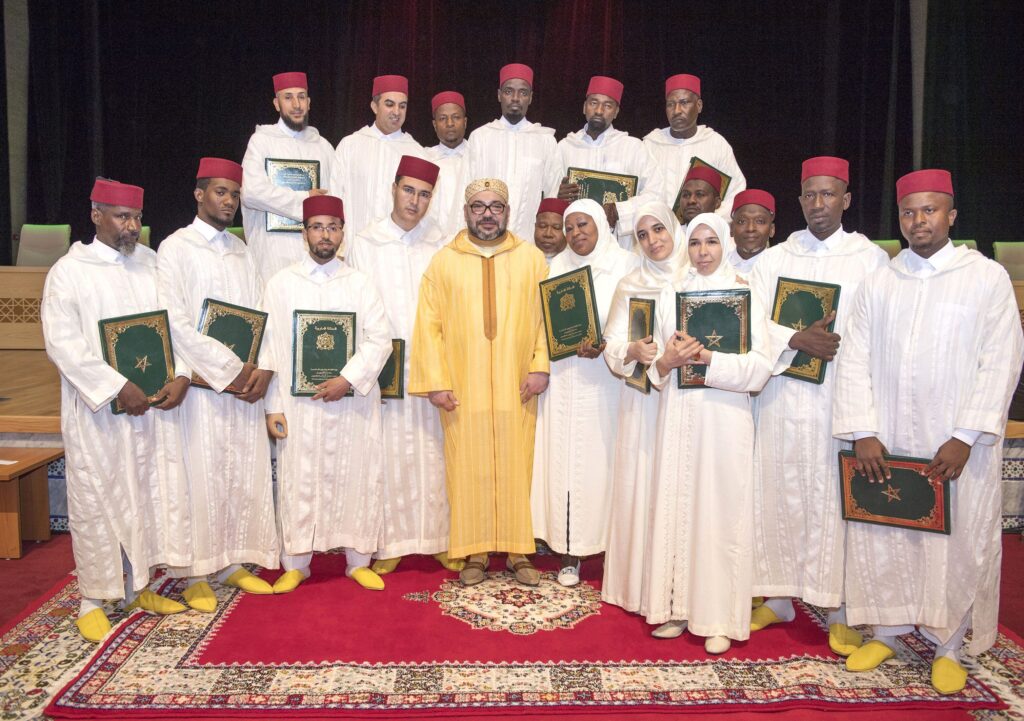
Second: The unique character of each institution:
Mohammed VI Institute for the Training of Imams: His role is embodied in Academic and practical training For Moroccan and African imams and religious guides, both male and female, to form a factory for graduating qualified religious competencies, who carry the message of moderate Islam.
Mohammed VI Foundation of African Ulema: Its role lies in Institutional framing of African scientists, To serve as an umbrella that brings together scholars, coordinates their efforts, provides them with a platform for dialogue and exchange of expertise, and organizes major religious events.
Axis II: The outcome of the two institutions’ work and their importance as a soft power
Here, we will address the most important aspects of the two institutions’ work over a full decade of their tireless work:
Mohammed VI Institute:
Training thousands of imams and female guides from Morocco, African and European countries (approximately 3,000 cadres by 2022).
Providing specialized training courses in jurisprudence, the principles of religion, and the humanities, in addition to training its members in imamate and preaching.
African Scholars Foundation:
Establishing branches in 48 African countries, reflecting the institution's wide geographical reach.
Organizing Quran memorization competitions, intellectual forums, and scientific seminars to promote dialogue among scholars.
Providing material and moral support to African scientists.
Regarding the importance of their work as a Moroccan soft power on the African level: Examples include, but are not limited to:
Investing in spiritual capital African, and directing it towards the values of tolerance and moderation.
Strengthening Morocco's diplomatic influence Through relationships between scholars, which transcend formal political frameworks.
Showing Morocco as a reliable partner And responsible for the spiritual security of the continent.
Axis Three: The Effectiveness of a Comprehensive Approach to Combating Terrorism
The failure of security approaches alone: Pointing out that extremist groups such as Boko Haram, ISIS, and others thrive on intellectual emptiness and religious ignorance.
The effectiveness of the Moroccan approach: It is represented by:
Intellectual anticipation: By training imams and guiding scholars, the vacuum exploited by terrorist groups is filled.
Methodological formation: Based on a comprehensive reading of religious texts, linking them to contemporary reality, and interpreting them in a way that serves the public interest.
Combating extremist fatwas: By uniting the efforts of scholars to confront fatwas of excommunication and incitement.
Axis Four: Elements of Excellence and Work in the Zawiya Square
Elements of distinction from the African counterpart: The most prominent features of this distinction from other similar African institutions are:
Direct royal patronage: Which gives the two institutions great legitimacy and power.
Unified curriculum: Adopting a comprehensive and unified Moroccan model, instead of the fragmentation of different curricula.
Integration between training (institute) and supervision (institution).
This distinction was reinforced by working in the Zawiya Square through:
The historical role of the corners: Referring to the role played by Sufi orders in spreading Islam in Africa.
Reviving this role: By using the two institutions as a platform to revitalize the role of Sufi zawiyas and groups associated with Morocco, framing them as bulwarks against extremism, and linking them to their spiritual centrality in Morocco.
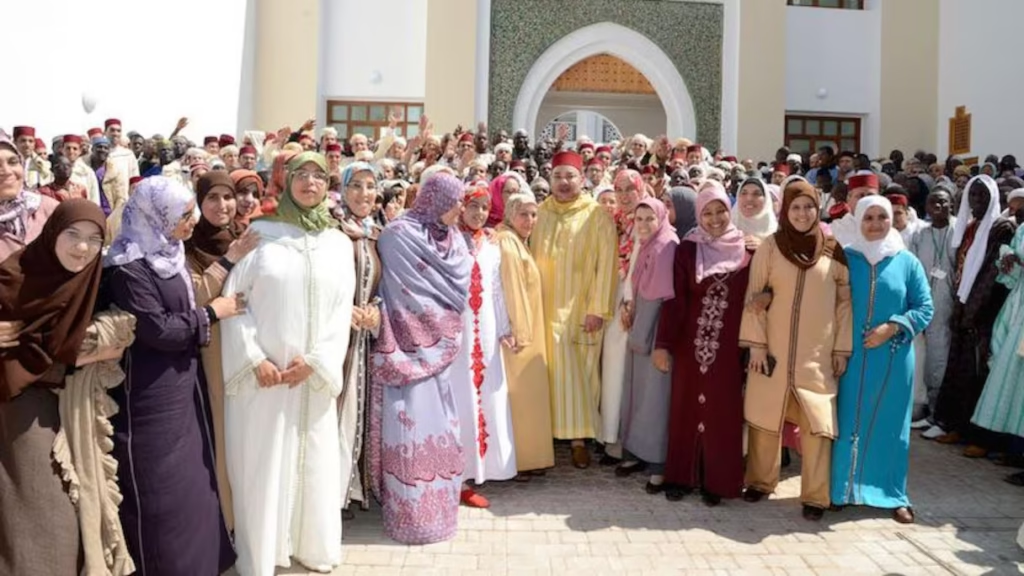
Conclusion: The future of Moroccan leadership on the continent
This remarkable success, which accompanied the work of the two institutions, reaffirmed that they were not merely fleeting initiatives, but rather the embodiment of a comprehensive and well-thought-out royal strategy, framed by the Commander of the Faithful, His Majesty King Mohammed VI, and implemented by competent Moroccan cadres who contributed to the realization of their objectives, alongside the distinguished religious energies that abound on the African continent.
Thus, as we celebrate the tenth anniversary of the founding of these two institutions, and the many goals they have achieved, their future prospects appear promising, heralding further success. This confirms that the Kingdom of Morocco, through these tools, is affirming its active engagement in building a secure and prosperous African future, and that this religious diplomacy will remain a fundamental pillar of its relations with the continent. It also tangibly confirms that the tenth anniversary of the founding of the two institutions is an opportunity to underscore the success of the Moroccan approach in harnessing the spiritual dimension as a force for development and stability.



